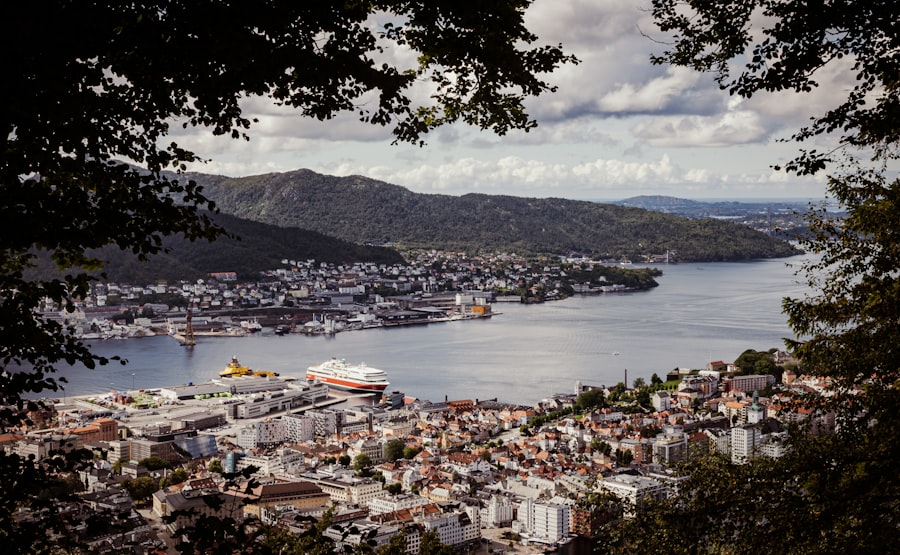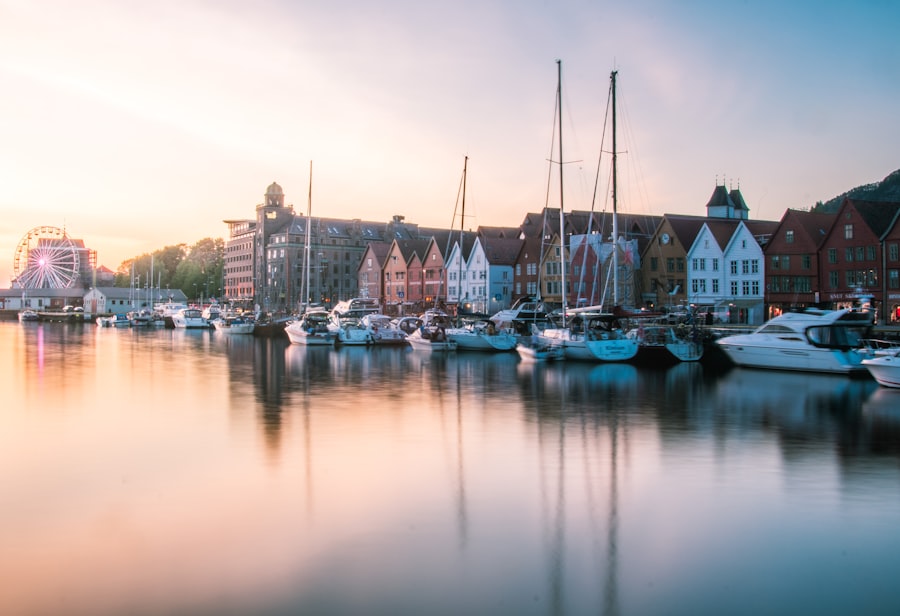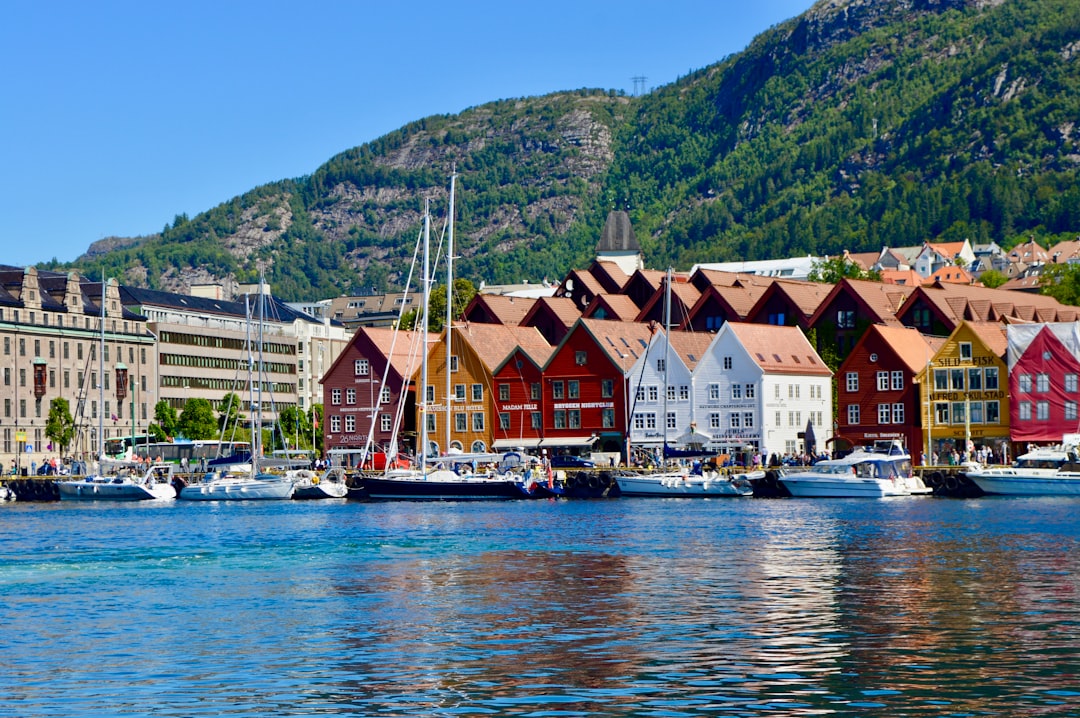World Environment Day, celebrated annually on June 5th, serves as a global platform for raising awareness about environmental issues and promoting action for the protection of our planet. Established by the United Nations in 1972, this day encourages individuals, communities, and governments to engage in activities that foster a sustainable future. Each year, a different theme is chosen to highlight pressing environmental concerns, galvanising efforts to address them.
The significance of this day cannot be overstated, as it not only serves as a reminder of the fragility of our ecosystems but also as a call to action for all of us to contribute to the preservation of our natural world. In Norway, World Environment Day is embraced with enthusiasm and commitment. The country’s stunning landscapes and rich biodiversity make it particularly sensitive to environmental changes, and this day provides an opportunity for Norwegians to reflect on their relationship with nature.
From coastal fjords to expansive forests, the natural beauty of Norway is a source of national pride, and the observance of World Environment Day reinforces the collective responsibility to protect these precious resources. As citizens come together to celebrate this day, they are reminded of the importance of sustainable practices and the need for ongoing efforts to combat environmental degradation. Your journey to a smooth relocation starts here. Talk one-on-one with a Norway Relocation specialist and turn your plan into a reality.
Summary
- World Environment Day is celebrated on 5th June every year to raise awareness and encourage action for the protection of our environment.
- Norway is committed to environmental sustainability through its strong focus on renewable energy, conservation efforts, and climate change mitigation.
- Environmental challenges facing Norway include deforestation, loss of biodiversity, and pollution from industries and transportation.
- The government has implemented initiatives such as carbon pricing, renewable energy subsidies, and strict environmental regulations to protect the environment.
- Community involvement in environmental conservation is encouraged through local clean-up events, recycling programs, and sustainable living initiatives.
Norway’s commitment to environmental sustainability
Norway has long been recognised as a leader in environmental sustainability, demonstrating a steadfast commitment to preserving its natural resources while promoting economic growth. The nation’s approach is rooted in the understanding that a healthy environment is essential for the well-being of its citizens and future generations. This commitment is reflected in various policies and initiatives aimed at reducing carbon emissions, protecting biodiversity, and promoting renewable energy sources.
Norway’s dedication to sustainability is not merely a governmental obligation; it is ingrained in the cultural fabric of the nation, where respect for nature is a core value. One of the most notable aspects of Norway’s commitment to environmental sustainability is its ambitious goal of becoming carbon neutral by 2030. This target is supported by a comprehensive strategy that includes investments in green technology, incentives for electric vehicles, and the promotion of sustainable practices across various sectors.
The Norwegian government has also prioritised the preservation of its vast forests and marine ecosystems, recognising their critical role in combating climate change. By integrating sustainability into its national policies, Norway sets an example for other countries striving to balance economic development with environmental stewardship.
Environmental challenges facing Norway

Despite its strong commitment to sustainability, Norway faces several environmental challenges that threaten its natural landscapes and ecosystems. Climate change poses a significant risk, leading to rising temperatures, altered precipitation patterns, and increased frequency of extreme weather events. These changes have far-reaching implications for Norway’s biodiversity, affecting species distribution and habitat integrity.
Additionally, the melting of glaciers and permafrost in the Arctic region raises concerns about rising sea levels and the potential for increased coastal erosion. Another pressing challenge is the impact of industrial activities on Norway’s pristine environments. While the country has made strides in promoting sustainable practices, sectors such as oil and gas extraction continue to exert pressure on natural resources.
The extraction processes can lead to habitat destruction and pollution, which threaten both terrestrial and marine ecosystems. Furthermore, overfishing remains a concern in some areas, jeopardising fish populations and disrupting the delicate balance of marine life. Addressing these challenges requires a multifaceted approach that combines policy reform, community engagement, and innovative solutions.
Government initiatives for environmental protection
The Norwegian government has implemented a range of initiatives aimed at protecting the environment and promoting sustainability. One key strategy is the establishment of strict regulations governing emissions from industries and transportation. By setting ambitious targets for reducing greenhouse gas emissions, Norway aims to transition towards a low-carbon economy while encouraging businesses to adopt cleaner technologies.
The government also invests heavily in renewable energy sources such as hydropower, wind energy, and solar power, which contribute significantly to the nation’s energy mix. In addition to regulatory measures, Norway has launched various programmes designed to enhance biodiversity conservation. Protected areas have been established across the country to safeguard critical habitats and species from human encroachment.
The government collaborates with local communities and environmental organisations to ensure that conservation efforts are effective and inclusive. Furthermore, initiatives such as reforestation projects and wildlife protection campaigns demonstrate Norway’s commitment to restoring ecosystems that have been degraded by human activity.
Community involvement in environmental conservation
Community involvement plays a crucial role in Norway’s environmental conservation efforts. Local communities are often at the forefront of initiatives aimed at protecting their natural surroundings, demonstrating a strong sense of stewardship towards their environment. Grassroots movements have emerged across the country, mobilising citizens to participate in clean-up campaigns, tree planting events, and educational workshops focused on sustainability.
These community-driven efforts not only foster a sense of ownership but also empower individuals to take action in their own lives. Moreover, local organisations often collaborate with schools and educational institutions to raise awareness about environmental issues among younger generations. By engaging children and young adults in hands-on activities related to conservation, these initiatives instil a sense of responsibility towards nature from an early age.
The involvement of communities in environmental conservation not only enhances local ecosystems but also strengthens social bonds as people come together for a common cause.
Corporate responsibility in promoting sustainable practices

In recent years, corporate responsibility has gained prominence in Norway as businesses recognise their role in promoting sustainable practices. Many companies are adopting environmentally friendly policies that align with national sustainability goals. This shift is driven by both consumer demand for ethical products and an increasing awareness among business leaders about the long-term benefits of sustainability.
Companies are now investing in green technologies, reducing waste, and implementing energy-efficient practices within their operations. Furthermore, corporate social responsibility (CSR) initiatives have become integral to many Norwegian businesses. These initiatives often focus on supporting local communities through environmental projects or contributing to conservation efforts.
By partnering with non-profit organisations or participating in community events, companies can enhance their reputation while making a positive impact on the environment. This collaborative approach not only benefits businesses but also fosters a culture of sustainability within society as a whole.
Innovative solutions for environmental preservation
Innovation plays a vital role in addressing environmental challenges and promoting sustainable practices in Norway. The country has become a hub for research and development in green technologies, with numerous start-ups emerging to tackle pressing environmental issues. From advancements in renewable energy systems to innovative waste management solutions, Norwegian entrepreneurs are at the forefront of creating technologies that reduce environmental impact.
One notable example is the development of electric ferries that operate along Norway’s fjords, significantly reducing emissions from maritime transport. These ferries not only provide an eco-friendly alternative for commuters but also contribute to preserving the pristine beauty of Norway’s coastal landscapes. Additionally, initiatives focused on circular economy principles are gaining traction, encouraging businesses to rethink their production processes and minimise waste through recycling and repurposing materials.
Celebrating World Environment Day in Norway
World Environment Day is celebrated across Norway with various events and activities aimed at raising awareness about environmental issues and inspiring action among citizens. Local governments often organise community clean-up days where residents come together to remove litter from parks, beaches, and natural areas. These events not only beautify local environments but also foster a sense of community spirit as people work collaboratively towards a common goal.
Educational institutions also play an active role in celebrating World Environment Day by hosting workshops, lectures, and exhibitions focused on sustainability topics. Schools encourage students to engage in projects that promote environmental awareness, such as creating art from recycled materials or conducting research on local ecosystems. By involving young people in these activities, Norway ensures that future generations are equipped with the knowledge and skills necessary to continue advocating for environmental protection.
Educational programmes and awareness campaigns
Education is fundamental to fostering a culture of sustainability in Norway. Various educational programmes are designed to raise awareness about environmental issues at all levels of society. Schools incorporate sustainability into their curricula, teaching students about climate change, biodiversity conservation, and responsible consumption practices.
This educational approach empowers young people to become informed advocates for the environment. In addition to formal education, awareness campaigns are launched by both governmental bodies and non-profit organisations to engage the public on pressing environmental issues. These campaigns utilise various media platforms to disseminate information about sustainable practices and encourage individuals to make environmentally conscious choices in their daily lives.
By raising awareness through targeted messaging and community outreach efforts, these campaigns aim to inspire collective action towards a more sustainable future.
Showcasing Norwegian success stories in environmental conservation
Norway boasts numerous success stories in environmental conservation that serve as inspiring examples for other nations striving for sustainability. One such success is the country’s extensive network of protected areas that safeguard vital habitats for wildlife while providing opportunities for ecotourism. These protected areas not only preserve biodiversity but also contribute significantly to local economies through sustainable tourism practices.
Another noteworthy achievement is Norway’s leadership in electric vehicle adoption. With generous incentives for electric car owners and an extensive charging infrastructure, Norway has become a global leader in electric vehicle usage per capita. This transition has resulted in significant reductions in greenhouse gas emissions from transportation while promoting cleaner air quality in urban areas.
These success stories highlight Norway’s innovative approaches to environmental conservation and demonstrate that meaningful progress is achievable through collective effort.
Looking towards the future: Norway’s vision for a sustainable environment
As Norway looks towards the future, its vision for a sustainable environment remains ambitious yet attainable. The government continues to prioritise policies that promote renewable energy development while reducing reliance on fossil fuels. By investing in research and innovation, Norway aims to remain at the forefront of green technology advancements that can be shared globally.
Furthermore, fostering international collaboration will be essential in addressing global environmental challenges such as climate change and biodiversity loss. Norway actively participates in international agreements aimed at promoting sustainable development while sharing its expertise with other nations facing similar challenges. By embracing a holistic approach that encompasses government action, community involvement, corporate responsibility, and innovative solutions, Norway envisions a future where both people and nature thrive harmoniously together.
In conclusion, World Environment Day serves as an important reminder of our collective responsibility towards protecting our planet. Through its unwavering commitment to sustainability, innovative solutions, community engagement efforts, and educational initiatives, Norway exemplifies how nations can work towards creating a more sustainable future for all. As we celebrate this day each year, let us draw inspiration from Norway’s achievements while recognising that every individual has a role to play in safeguarding our environment for generations to come.
Register for a Norwegian class at the NLS Norwegian Language School now!

